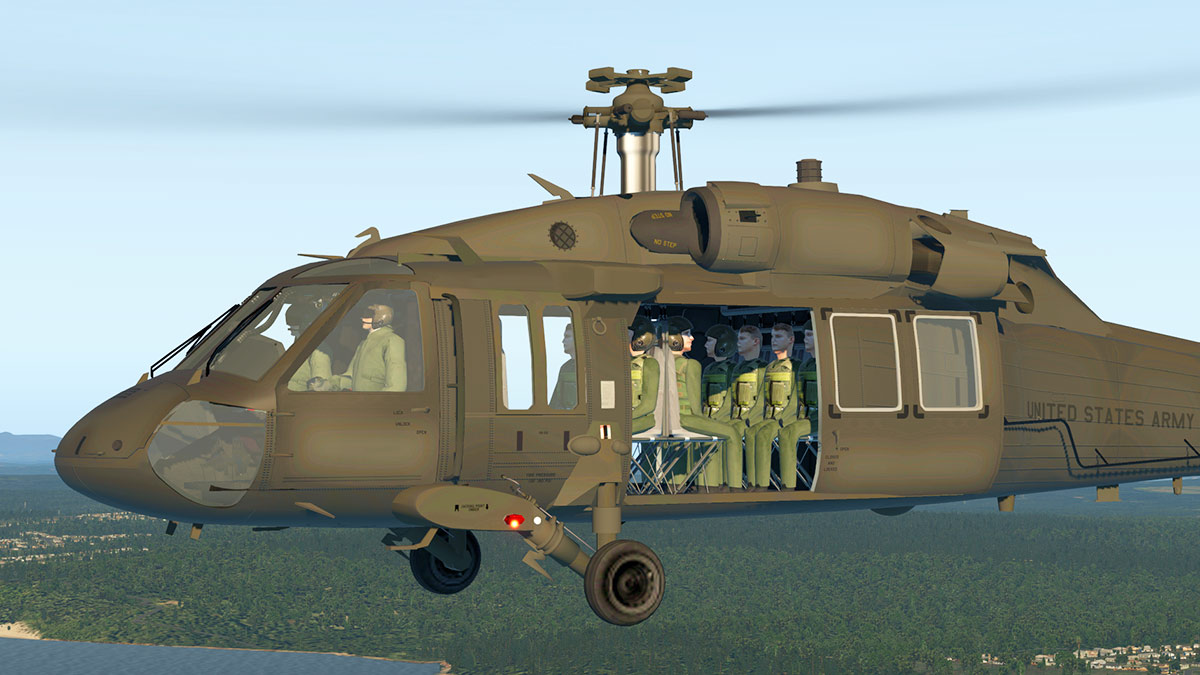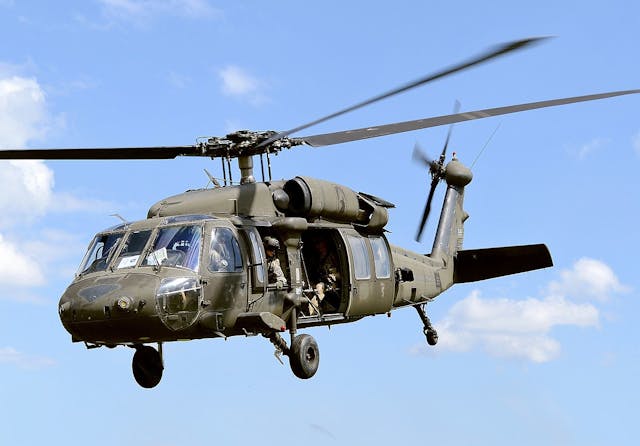UH 60 Helicopter: Advanced Avionics and Battle Solutions
UH 60 Helicopter: Advanced Avionics and Battle Solutions
Blog Article
The Influence of Sustainable Practices on the Future of Airplane Procedures and Emissions Decrease
As the air travel market faces raising scrutiny over its ecological effect, the adoption of sustainable techniques emerges as a critical path toward future aircraft operations and exhausts decrease. Developments in lasting aviation fuels and innovations in hybrid propulsion innovations stand at the forefront of this change, promising considerable decreases in greenhouse gas exhausts.

Introduction of Lasting Practices
Lasting techniques in aircraft operations encompass a range of techniques intended at lowering environmental effect while preserving operational performance. These practices are crucial in the air travel sector's commitment to lessening its carbon footprint and adhering to international environmental criteria. Key campaigns include enhancing flight courses to minimize gas usage, improving maintenance procedures to guarantee airplane operate at peak effectiveness, and executing innovative modern technologies such as winglets and light-weight materials that enhance aerodynamics.

Educating and involving staff on sustainability practices also play a crucial role, cultivating a society of environmental obligation within organizations. Generally, the assimilation of these lasting techniques not only helps in reducing exhausts yet additionally boosts the long-lasting viability of the air travel field, ensuring it satisfies the demands of both clients and regulatory bodies while adding to international sustainability goals.
Cutting-edge Fuel Alternatives
Countless innovative gas options are becoming essential services to minimize the aviation sector's reliance on conventional fossil fuels. Among these alternatives, Sustainable Air travel Fuels (SAFs) have obtained considerable interest because of their prospective to reduce lifecycle greenhouse gas discharges by as much as 80% compared to conventional jet gas. SAFs are stemmed from different feedstocks, consisting of waste oils, agricultural residues, and also algae, making them a functional alternative for the sector.
Another promising choice is hydrogen gas, which, when utilized in fuel cells, generates just water vapor as a result. This zero-emission possible presents a significant chance for decarbonizing trip procedures, specifically for short-haul trips and local aircraft. Additionally, electric propulsion systems are being explored, leveraging battery technology to power aircraft. While existing battery capacity restrictions variety and payload, continuous improvements may quickly provide electrical flights viable for details applications - uh 60.
Lastly, biofuels originated from biomass are being explored, using a renewable choice that can be blended with standard fuels. Jointly, these ingenious fuel options represent a crucial action toward attaining a lasting aviation ecological community, straightening with global exhausts reduction targets and enhancing the market's ecological stewardship.
Technical Innovations in Air Travel

Just how can technical developments improve the future of aeronautics? Innovations such as electric and hybrid propulsion systems are at the leading edge, encouraging significant decreases in gas consumption and greenhouse gas discharges.
In addition, the application of advanced products, such as light-weight composites, adds to enhanced aerodynamics and fuel performance. Using expert system and artificial intelligence in trip procedures maximizes route preparation and decreases gas melt by enabling real-time modifications based upon weather and website traffic conditions. Additionally, the growth of autonomous and from another location piloted aircraft systems stands to change cargo and passenger transportation, potentially boosting effectiveness while reducing human mistake.
Furthermore, sustainable air travel modern technologies, including advanced air website traffic monitoring systems, can lower and improve procedures congestion, resulting in lower discharges during flight. These advancements collectively stand for a standard change in aeronautics, assuring a future where sustainability and operational efficiency are intertwined, therefore supporting the market's dedication to reducing its ecological influence.

Regulatory Structure and Conformity
Because of the growing emphasis on environmental stewardship within the hop over to these guys aviation sector, the governing structure regulating airplane procedures is progressing to promote sustainable techniques. Regulative bodies, such as the International Civil Aviation Organization (ICAO) and various nationwide air travel authorities, are presenting strict guidelines intended at lowering emissions and boosting functional efficiency.
These guidelines usually include the fostering of Lasting Air travel Fuel (SAF), which has been recognized as an essential component in attaining reduced carbon impacts. In addition, compliance with these guidelines needs airlines to execute operational methods and advanced innovations, such as maximized flight courses and boosted air traffic monitoring, to lessen fuel usage.
Furthermore, the enforcement of discharges check these guys out trading schemes and carbon balancing out efforts is ending up being significantly common, compelling airline companies to keep track of and report their exhausts precisely. Non-compliance can cause substantial fines, thus pressing operators to prioritize sustainability in their business models.
Inevitably, the progressing regulative landscape not just drives innovation and financial investment in environment-friendly modern technologies yet likewise promotes a culture of responsibility within the find more information aeronautics sector. As these frameworks remain to establish, the concentrate on lasting methods will be integral to attaining the industry's long-term ecological objectives.
Future Patterns in Aircraft Procedures
As the aeronautics industry adapts to an increasingly rigorous governing atmosphere, future patterns in airplane operations are set to concentrate on innovative services that additionally improve sustainability and effectiveness - uh 60. Key developments will likely consist of the adoption of advanced air web traffic monitoring systems, which use real-time information and synthetic knowledge to maximize flight paths, lowering gas usage and emissions
An additional significant trend is the increased combination of sustainable air travel gas (SAFs) These choices to standard jet gas, stemmed from sustainable resources, can significantly lower lifecycle greenhouse gas discharges. The industry's commitment to SAFs will likely accelerate as airlines team up with fuel producers to ensure availability and cost-effectiveness.
Furthermore, the push in the direction of electrification and crossbreed propulsion systems is obtaining momentum. Arising airplane layouts will include these technologies, providing quieter and more effective operations, particularly for short-haul trips.
Final Thought
The adoption of lasting air travel fuels, coupled with developments in hybrid and electrical propulsion systems, is essential for minimizing lifecycle greenhouse gas emissions. Maximizing flight courses and welcoming ingenious modern technologies contribute to a quieter and a lot more ecologically friendly air travel market.
Innovations in sustainable aeronautics gas and innovations in hybrid propulsion technologies stand at the center of this transformation, encouraging considerable decreases in greenhouse gas emissions.Many cutting-edge fuel alternatives are arising as crucial options to decrease the aviation sector's reliance on standard fossil gas - uh 60. Amongst these alternatives, Sustainable Aviation Fuels (SAFs) have actually acquired significant focus due to their prospective to reduce lifecycle greenhouse gas exhausts by up to 80% contrasted to standard jet gas.Another substantial pattern is the enhanced integration of sustainable aviation fuels (SAFs) The adoption of sustainable air travel fuels, paired with improvements in electric and hybrid propulsion systems, is necessary for reducing lifecycle greenhouse gas exhausts
Report this page